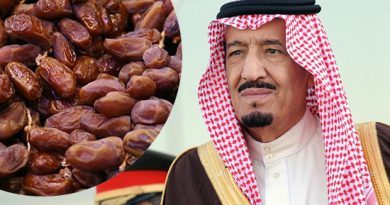Saudi Crown Prince Mohammed bin Salman’s state visit to India: Strengthening Diplomatic and Economic Bonds
It serves to emphasize the robust bilateral relationship between Saudi Arabia and India and their mutual commitment to enhancing ties in various areas, such as politics, economics, and culture.
Saudi Crown Prince Mohammed bin Salman is scheduled to embark on a state visit to India in September, which follows his participation in the Delhi G20 Summit.
Confluence of Events: G20 Summit and State Visit
The alignment of the state visit with the Crown Prince’s attendance at the Delhi G20 Summit holds great significance. It serves to emphasize the robust bilateral relationship between Saudi Arabia and India and their mutual commitment to enhancing ties in various areas, such as politics, economics, and culture.
The concurrent timing of these events provides an opportunity for Crown Prince Mohammed bin Salman to engage in high-level discussions with Indian leaders and other global participants attending the G20 Summit.
Diplomatic Honors and Ceremonies
The state visit of the Saudi Crown Prince to India is expected to be a momentous occasion, marked by several diplomatic honors extended by the Indian government. One of these notable honors includes a guard of honor that will be presented to the Crown Prince at the Rashtrapati Bhawan, the official residence of the President of India in New Delhi.
The presentation of a guard of honor is a ceremonial gesture that holds great significance in diplomatic protocol. It symbolizes the respect and esteem with which the visiting dignitary is received by the host country.
By bestowing this honor upon the Saudi Crown Prince, the Indian government expresses its warm welcome and hospitality, signifying the importance it places on the visit.
Evolving Role: From Deputy Prime Minister to Prime Minister
Crown Prince Mohammed bin Salman’s upcoming visit to India holds unique significance compared to his previous visit in February 2019. During that earlier visit, he held the position of the First Deputy Prime Minister of Saudi Arabia. However, this upcoming visit is distinctive as it marks his arrival in India in his capacity as the Prime Minister of Saudi Arabia.
The shift in roles from the First Deputy Prime Minister to the Prime Minister underscores the evolving leadership dynamics within Saudi Arabia. It reflects the continued growth and development of Crown Prince Mohammed bin Salman’s political career and his elevated position within the Saudi government.
Moreover, this transition in roles also highlights the ongoing commitment to diplomatic engagement between Saudi Arabia and India. Despite the change in Crown Prince Mohammed bin Salman’s position, the decision to undertake a state visit to India demonstrates the desire to maintain and strengthen the bilateral relationship between the two countries.
Preparations and Bilateral Discussions
The holding of high-level discussions in Delhi between a delegation from Saudi Arabia and Indian officials last week is a positive step in preparation for the upcoming visit of Crown Prince Mohammed bin Salman. These discussions serve as an important platform to lay the groundwork for a productive and meaningful visit, with the aim of further strengthening the multifaceted partnership between Saudi Arabia and India.
The shared commitment to addressing global challenges is an essential aspect of the Saudi Arabia-India relationship. As two prominent countries in their respective regions, they have a mutual interest in regional stability, combating terrorism, promoting economic growth, and addressing other global issues. These discussions provide an opportunity to exchange perspectives on these matters and find common ground to address them effectively.
Strategic Partnership and Economic Ties
The year 2019 was indeed a significant moment in Indo-Saudi relations, marked by Prime Minister Narendra Modi’s visit to Saudi Arabia, which resulted in the establishment of the Strategic Partnership Council (SPC) between the two countries.
The SPC is a comprehensive framework that encompasses two parallel tracks of cooperation. The first track focuses on political, security, cultural, and societal aspects. This includes areas such as diplomatic relations, defense cooperation, cultural exchanges, and people-to-people ties.
The second track of the SPC is centered on economic and investment matters. It emphasizes the mutual goal of fostering economic growth and technological exchange between the two nations. This track aims to promote trade and investment opportunities, facilitate business cooperation, encourage technology transfer, and explore avenues for joint ventures in various sectors. The focus on economic collaboration underscores the desire to strengthen the bilateral economic relationship and harness the potential for shared prosperity.
Bilateral Trade and Energy Security
Saudi Arabia holds a significant position in India’s trade landscape, ranking as its fourth-largest trading partner. The economic engagement between the two countries extends beyond conventional trade and encompasses a crucial aspect of energy security.
Saudi Arabia plays a pivotal role in India’s energy portfolio by being one of its main suppliers of crude oil. It accounts for a substantial portion of India’s crude oil imports, contributing to over 18 percent of the country’s total imports. This strong energy partnership is vital for India’s energy security and ensures a stable and reliable supply of oil to meet its growing energy demands.
The robust energy partnership between Saudi Arabia and India underscores the interdependence of their economies. India’s rapidly expanding economy requires a consistent and secure supply of energy resources, and Saudi Arabia, as one of the world’s leading oil producers, has the capacity to meet India’s energy needs. The reliable supply of crude oil from Saudi Arabia helps India maintain its energy security, support its industries, and sustain its economic growth.
Expatriate Communities and Cultural Ties
The presence of the Indian diaspora in Saudi Arabia adds a significant dimension to the bilateral relationship between the two countries. The Indian community in Saudi Arabia is substantial, with an estimated population of around 2.2 million people, making it the largest group of expatriates in the kingdom.
The Indian diaspora in Saudi Arabia plays a vital role in various sectors, including healthcare, technology, construction, and other industries. They contribute to the development and growth of both nations by bringing their skills, expertise, and labor to the Saudi Arabian economy. Their contributions help drive economic progress, create employment opportunities, and promote economic ties between India and Saudi Arabia.
Hajj Pilgrimage and Cultural Exchange
The annual Hajj pilgrimage is indeed an integral component of the Indo-Saudi relationship and holds immense cultural and religious significance for Muslims in India and around the world.
The Hajj pilgrimage is one of the Five Pillars of Islam and is a mandatory religious duty for able-bodied Muslims who can afford to undertake the journey. Every year, millions of Muslims from different countries, including India, travel to the holy city of Mecca in Saudi Arabia to perform the Hajj rituals.
The announcement made during Crown Prince Mohammed bin Salman’s previous visit to New Delhi in February 2019, regarding the increase in India’s Hajj quota, further strengthened the ties between the two countries. The increase in the Hajj quota for India demonstrated Saudi Arabia’s commitment to facilitating the pilgrimage for a larger number of Indian Muslims.
By allowing more Indian Muslims to undertake the Hajj, Saudi Arabia not only accommodates the religious aspirations of the Indian Muslim community but also deepens the spiritual connection between the two nations. It reflects the long-standing historical and cultural ties between India and Saudi Arabia, transcending geographical boundaries.
Looking Forward
Crown Prince Mohammed bin Salman’s visit to India holds great potential for building upon existing partnerships and exploring new avenues of collaboration between the two nations. Such visits provide an opportunity to strengthen bilateral ties and foster mutual understanding, contributing to the stability and prosperity of both countries and the broader region.


